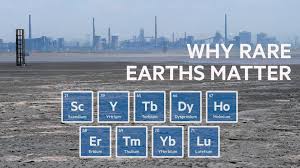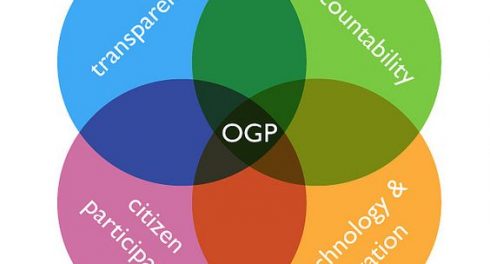Highlight
- The nation and the people
- Rise to the top / Survival
- Rat race
- Conscious mix
- TAI Spotlight: Funders, do you need a data scientist?
In the last of our September musically inspired Weeklies, this week’s headings are all song titles by Nigerian group The Mandators
The Nation and the People

Photo via Jooinn.com
Given the current gloom, if symbolism counts for anything, some encouragement in form of the virtual open government leaders summit. Even The Economist found solace in 1000+ attendees and an impressive array of heads of state, largely backing up Joe Powell’s pre-Summit call for a stronger coalition for democracy and open government. Good news, too, in the announcement of Aidan Eyakuze and the Government of Italy as incoming Open Government Partnership co-chairs.
In a similar spirit, the US National Academy of Public Administration starts a new project to develop new approaches to public governance and engagement while Rob Bray, Matthew Gray and David Stanton analyze Australia’s experience to remind us that fundamental elements of accountability, use of evidence, and results-based approaches are in tension with the inherently political nature of government decision making.
The Australia case also highlights persistent challenges in using big data in government, although a reflection on five years of the Global Partnership for Sustainable Development Data offers some inspiring case examples, and the World Bank detail how data from Nairobi’s road traffic crashes (collected from Twitter, Facebook, motorcycle driver verification and police reports) helps officials understand how to best address them.
Of course, as Jurgita Lapienytė reminds us, country data innovations play out against a backdrop of a global race to enforce data sharing rules on other jurisdictions. Meantime, Subra Ramesh asks “Is it better to underestimate or overestimate a data breach?”
Rise to the top / Survival
Last week we flagged World Bank research showing women’s presence in parliaments correlates to policies that close gender gaps. Interesting then to see a top Kenyan Judge advice the country’s parliament to dissolve over lack of equal representation of women. Although, Chidi Odinkalu worries that such steps may become increasingly rare across Africa as judicial independence confronts authoritarianism.
Returning to gender gaps, in time for a virtual Intergovernmental Forum on Mining, Mineral, Metals and Sustainable Development, Kalowatie Deonandan and Ege Tekinbas offer a tool to map possible gaps and areas for further improvement in programs and research approaches to gender equity in mining governance. Perhaps no surprise that it was male executives recorded bragging of their ability to influence government agencies and win federal permits for controversial Pebble Mine in Alaska.
Rob Pitman and Kaisa Toroskainen highlight the need for more oversight of extractive industries suppliers, while Alonso Hidalgo examines the Mexican government’s strategy to reform Pemex from the world’s most indebted national oil company amid an energy transition agenda. Talking of debt, is the Ghanaian government creating problems down the road by selling off future gold royalties now to free up cash (and with an election looming)?
Turning to business and sustainability more broadly, the Big Four accounting firms — EY, PwC, Deloitte, and KPMG — have come together to narrow sustainability metrics to a set of 21 reportable metrics in key areas of governance, people, prosperity, and the planet. Check out their governance principles including an assertion that “agency, accountability and stewardship continue to be vital”. (Will they apply these principles to themselves?)

Photo Credit: Financial Times
Essential Watch: Why China’s control of rare earths matters
Financial Times’ Jamie Smyth explains the importance and implication of China dominance in the world’s production and supply of rare metals – obscure elements that are vital for high tech-manufacturing.
Rat Race

Fallout from the FinCEN mega-leak files continues, pulling in politicians and banks with Deutsche Bank apparently responsible for facilitating over half of the $2 trillion in suspicious transactions. Julian Dixon offers an industry take for beefing regulators, not putting too much blame on the banks additional reports in the latest financial scandal, while Silla Brush attempts to paint a bigger picture behind illicit money flows and its immediate impact on the financial sector.
Will anything really change? Mayra Rodriguez Valladares doubts it as does Anthea Lawson – she argues that the files should not have been revelatory at all, but an affirmation to what past investigations have already pointed to – a system that gives the pretense of stopping dirty money only.
Martin Sandbu says while US crackdown on dirty money leaves much to be desired, it is well ahead of Europe. He calls for more investigative resources, tougher criminal punishment on offenders, coordinated regulation, and a greater determination to crack down grafts and bank secrecy which threatens democracy and the rule of law.
Perhaps these steps will make their way into the final UN Financial Accountability Transparency and Integrity panel report. Meantime, Michael Findley, Daniel Nielson, and Jason Sharman offer a paper reviewing FACTI progress made in curbing money laundering and other abuses of the financial system that facilitate corruption. Key takeaway? On paper, progress. In practice, less so as “haven” countries haven’t even tried to do enough. Read alongside a new World Bank report that examines the manifestations of corruption and efforts to address them from three perspectives: sector-specific, sharpening policy tools and interventions, and strengthening institutions by complimenting traditional methods with digital like GovTech to address corruption.
Global Witness reveals how anonymous shell companies are used to launder money in U.S. real estate market. Sticking with real estate as cover for bad money, Canadians For Tax Fairness, Publish What You Pay Canada, and Transparency International Canada have also published an advocacy handbook on Ending Canada’s Snow-Washing Problem with a Publicly Accessible Beneficial Ownership Registry. Folks at Tax Justice Network, FACT Coalition, Open Ownership, and Global Witness posits prioritizing the fight against illicit finance and introducing beneficial ownership registers will improve enforcement of existing money laundering laws.
Good to see the UK government balance the ease of doing business with fraud prevention, with directors unable to be appointed until their identity has been verified. However, what might be a more fundamental approach to stopping corporate fraud? Try ethics.

Photo credit: BuzzFeed News
Essential Listening: Suspicious Activity – Inside the FinCEN Files
In this five-part podcast, Pineapple Street Studios and BuzzFeed News share how the most powerful banks in the world facilitate the worst of humanity – terrorism, human trafficking, the drug trade – all in plain sight of the government.
Conscious Mix
Edgar Villanueva calls on philanthropy to step up and fight for (and fund) democracy or risk losing public trust. Lucy Bernholz fleshes out what that might look like in the digital age, updating the rules that govern nonprofits and foundations including a rethink of tax breaks, digital systems, and “redefining where good happens.”
Philanthropy also needs to show how it is addressing systemic racial injustice. A recent report by the Council on Foundations has shown that 20% of grantmakers with endowments were proposing new investment practices, such as mission-related investments or investing in new ways that advance racial equity. Ford Foundation’s new initiative “America’s Cultural Treasures” provides $71M in funding for 20 Black, Latinx, Asian, and Indigenous arts organizations as well as a $35M commitment from Ford to seed grantmaking in 2021.
Never waste a crisis goes the saying, and perhaps foundations can make overdue shifts. An Inside Philanthropy survey reveals what Foundation staff thinks about their work and how the pandemic is changing practices and policies.
Of course, funders and grantees alike have needed to adapt to working remotely, so we end this week with R4D and EDI Global sharing lessons from conducting a remote survey with their partners in Tanzania.
TAI Spotlight: Funders, do you need a data scientist?
Funders, do you need a data scientist? | Transparency and Accountability Initiative
With funders sitting on a goldmine of data, more are asking how they can best use data and what skills they might need to do that. TAI’s Executive Director, Michael Jarvis, offers some pointers on determining what capacity to build in house or outsource.
Creative futures | Ford Foundation
The Ford Foundation launched Creative Futures, a series of 40 provocations by thinkers across the spheres of arts and culture, documentary film, and journalism which outlines concrete, actionable plans that can carry social and cultural transformation forward.
Democracy frontlines fund launched | Hewlett Foundation
The Hewlett Foundation joined the Libra Foundation and 10 other foundations to establish the Democracy Frontlines Fund, a new initiative to provide sustained support to frontline, black activists leading the movement to end systemic racism.
$25 million toward an equitable recovery | MacArthur Foundation
MacArthur announced a $25 million grants to address anti-Black racism, support Native Americans impacted by COVID-19, strengthen voter education and mobilization, and combat voter suppression. This represents the first set of grants made from MacArthur’s $125 million social bond proceeds.
Growing financial independence to protect editorial independence | Luminate
New research commissioned by Luminate and conducted by Provokers in Argentina, Brazil, Colombia, and Mexico found that 57% of readers of digital media have increased their consumption of digital news during the pandemic.
Job listings
- Luminate Director, Africa – Ongoing
- Communications officer at ICTD – Ongoing
- Job postings at Ford Foundation – Ongoing
- Job postings at Democracy fund – Ongoing
- Job postings at Wikimedia Foundation – Ongoing (and mostly remote)
- Government Affairs Senior Policy Advisor, International Financial Institutions at Oxfam – Ongoing
- Director of Development and Solidarity Philanthropy at Grassroots International – Ongoing
- Senior Communications Coordinator at Grassroots International – Ongoing
Calls/Opportunities
- COVID-19 Litigation Fund – September 30, 2020
- Citizen-Led Accountability: Strategies and Tools Certificate course – October 1, 2020
- Call for tender: rebuilding better: opportunities and risks in the context of COVID-19 – October 1, 2020
- USAID’s Development Innovation Ventures (DIV) grant funding – Ongoing
- BetterTogether Challenge for innovators – Ongoing
- Call for research proposals: Tax and civil society [No Deadline]
- Free Digital Security Training – Ongoing
- Open Road Alliance Charitable Grant and Loan to organizations responding directly to COVID-19 – Ongoing
- Call for submissions to SSIR Series: Social change in an era of extreme polarization – Last Thursday of every month until early 2021
- Pulitzer Center Coronavirus news collaboration challenge – Applications will be reviewed on a first-come, rolling basis
- Call for proposals: Informality, tax, and the state – Proposals accepted on a rolling basis
Calendar
- People Power Shift: What next for people power in public services? – September 28 – October 1, 2020
- OpenOwnership Tech Showcase #2 – October 1, 2020
- Sixth International CREA Conference: Interrogating Cultural Responsiveness Against the Backdrop of Racism and Colonialism Virtual Conference – September 30 – Oct 2, 2020
- Aspen Institute: Money, Power, and “Capacity Development” in Africa: Perspectives from Civil Society Organizations – October 6, 2020 (8 am ET)
- The 2020 Journalism Funders Gathering (funder-only gathering) – October 6-7, 2020 (Philadelphia, United States of America)
An investor perspective on the green energy transition and mining: How can we make it more responsible? –October 8, 2020 (1.30pm – 3pm BST – London) - OpenGov Digital Youth Summit – October 27th and 28th 2020 (Online)
- Humanitarian and Development Data Forum – November 2-4, 2020 (Chambery, France)
- International Civil Society Center – Global Perspectives Experience – November 2-5, (12 pm-12am, Online)
- World Forum for Democracy (democracy and the environment) – November 16-18, 2020 (Strasbourg, France)
- Transparency International: 19th International Anti-Corruption Conference – December 1-4, 2020 (online)
- International Open Data Conference –(Postponed till 2021).


